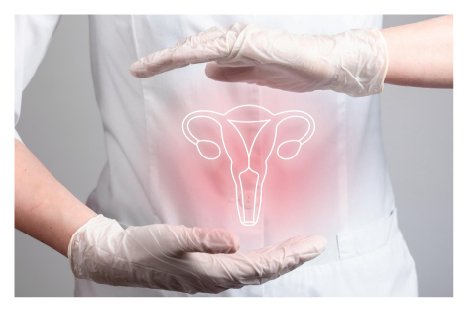
At Yellow Fertility & IVF, our flagship IVF program with 86% success rate combines cutting-edge science with deeply compassionate care to give you the best possible chance of building your family.
What Is Fertility Preservation?
Fertility preservation is the process of saving reproductive cells or tissues such as eggs, sperm, or embryos for future use. It helps ensure that individuals still have the opportunity to build a family when the time is right. This option is especially recommended for those undergoing treatments like chemotherapy or radiation and individuals with reproductive health conditions.
There are two main types of fertility preservation procedures: medical fertility preservation, which supports those at risk due to illnesses or treatments, and elective fertility preservation, chosen by individuals who wish to plan ahead on their own terms.

Why Families Choose IVF at Yellow Fertility?
- 86% Success Rate – Among the highest in the industry
- Advanced Labs – World-class technology for precise, high-quality care
- Personalized Protocols – Tailored to your body and journey
- Expert Team – Fertility specialists, embryologists, and counselors
- Emotional Support – Compassionate care at every step

When Should You Consider Laser-Assisted Hatching?
Not every IVF cycle requires this method. However, Laser-Assisted Hatching (LAH) Treatment in IVF can be a helpful option if:
- You have had two or more failed IVF cycles.
- You are undergoing frozen embryo transfer (FET).
- You are over 38 years old.
- You have elevated FSH levels or poor ovarian reserve.
- You are facing unexplained infertility.
- Your embryo’s outer shell appears thicker or harder under observation.
Our fertility experts will review your medical history and embryo development before recommending this technique.

Fertility Preservation for Children
- Used in cases where children face serious health conditions that may impact future fertility.
- Allows parents to take proactive steps to preserve reproductive potential early.
- Ovarian tissue freezing is an option for girls who have not yet reached puberty.
- Testicular tissue freezing is suitable for boys who are prepubescent or unable to produce sperm.
- Procedures are chosen based on the child’s age, medical condition, and stage of puberty.
Fertility Preservation Methods for Adults
Women have several effective fertility preservation methods based on age and medical needs. Egg freezing involves hormonal stimulation to retrieve and store eggs. Embryo freezing is similar but involves fertilising the eggs with sperm before freezing. In urgent medical cases, ovarian tissue freezing offers an option without hormonal preparation by removing and preserving ovarian tissue for future re-implantation.
Men can preserve fertility through reliable fertility preservation procedures. Sperm freezing is the most common, where semen is collected, tested, and stored long-term without losing fertility potential. For boys or men who can’t produce sperm, testicular tissue freezing allows for the future extraction of sperm from preserved tissue, providing hope for future parenthood.
What to Expect During the Procedure?
Each fertility preservation method is different, but most follow these general steps:

Hormonal injections for 10–12 days

Egg retrieval under light sedation

Freezing of eggs or fertilised embryos

Minimally invasive laparoscopy

Tissue removal under general anaesthesia
Why Families Choose IVF at Yellow Fertility
Fertility journeys can be emotional, and that is why choosing the right fertility partner makes all the difference.
At Yellow Fertility & IVF, we provide more than just treatment; we provide confidence. From world-class labs to personalised protocols and emotional support, we create an experience that is as reassuring as it is effective.
Advanced Labs
State-of-the-art technology for unmatched precision
Personalised Protocols
Tailored plans for your unique body and timeline
Expert Team
Fertility specialists, embryologists, and counsellors under one roof
Transparent Care
Clear communication and no hidden costs, so you always know what to expect
How Much Does Fertility Preservation Cost?
The fertility preservation cost can vary depending on the procedure and duration of storage. At Yellow IVF, we understand the importance of affordability and transparency. That is why we offer clear cost breakdowns.
On average, sperm freezing costs between ₹10,000 and ₹30,000 per sample. Egg freezing can range from ₹1,20,000 to ₹2,00,000 per cycle. Embryo freezing costs are generally similar to egg freezing, but can also include additional costs for genetic testing.
What Is the Ideal Time for Fertility Preservation?
Timing plays a crucial role in the success of fertility preservation. Here are key points to consider:

Fertility potential is highest in your 20s and early 30s.

Individuals undergoing chemotherapy or major surgeries should consider preservation beforehand.

If you’re not ready to start a family, early preservation can safeguard future options.

Conditions like endometriosis, PCOS, or low ovarian reserve may require timely action to secure reproductive chances.
Take the First Step with Yellow IVF
Preserving your fertility is about preserving the future you dream of. At Yellow IVF, we bring science and expertise together to make that future feel within reach.
Let us help you plan today for the family you want tomorrow. Explore your options and learn about the fertility preservation cost. And take the next step with confidence.
Call at 1800 203 3850 or write to us at info@yellowivf.com to have a conversation with our fertility experts today.
FAQ about Fertility Preservation
Consider it before medical treatments like chemotherapy, or if you want to delay pregnancy due to personal or medical reasons, while protecting your reproductive potential.
The ideal age for egg freezing is typically between 25 and 35, when egg quality and quantity are at their peak for optimal outcomes later.
Frozen eggs and sperm can be safely stored for many years. With proper cryopreservation, there’s no significant decline in quality over time.
Egg freezing stores unfertilised eggs. Embryo freezing involves fertilising the eggs with sperm before freezing. Couples often choose embryo freezing if they’re ready to create embryos now.
Most procedures are minimally invasive. Egg retrieval may cause mild discomfort but is done under sedation. Tissue preservation involves general anaesthesia with a short recovery.
Don’t Just Take Our Words, Take Theirs
EXCELLENTTrustindex verifies that the original source of the review is Google. Good servicePosted onTrustindex verifies that the original source of the review is Google. From the first consultation to the treatment, Yellow Fertility has been extremely supportive and professional. The staff is caring, and the doctors are highly knowledgeable. If you’re looking for top fertility specialists in Gurgaon, I highly recommend this clinic.Posted onTrustindex verifies that the original source of the review is Google. Amazing experience! The doctors and staff are supportive, professional, and truly care. Highly recommend for anyone on their fertility journey.Posted onTrustindex verifies that the original source of the review is Google. Went with a friend for support. I found the staff very kind and non-judgmental.Posted onTrustindex verifies that the original source of the review is Google. Centre is very well equipped, special thanks to Ms Palak for her guidance and treatment explanation.Posted onTrustindex verifies that the original source of the review is Google. Best and Most trusted IVF trusted centre I ever seen. Staff behaviour are very positive and professional.Posted onTrustindex verifies that the original source of the review is Google. I’d been putting off egg freezing for years mostly because of the cost and not knowing where to start,Yellow Fertility changed that. They really listened and guided me through every step and even helped me with a financial plan that made it doable for me. So grateful I finally took this step with them.
